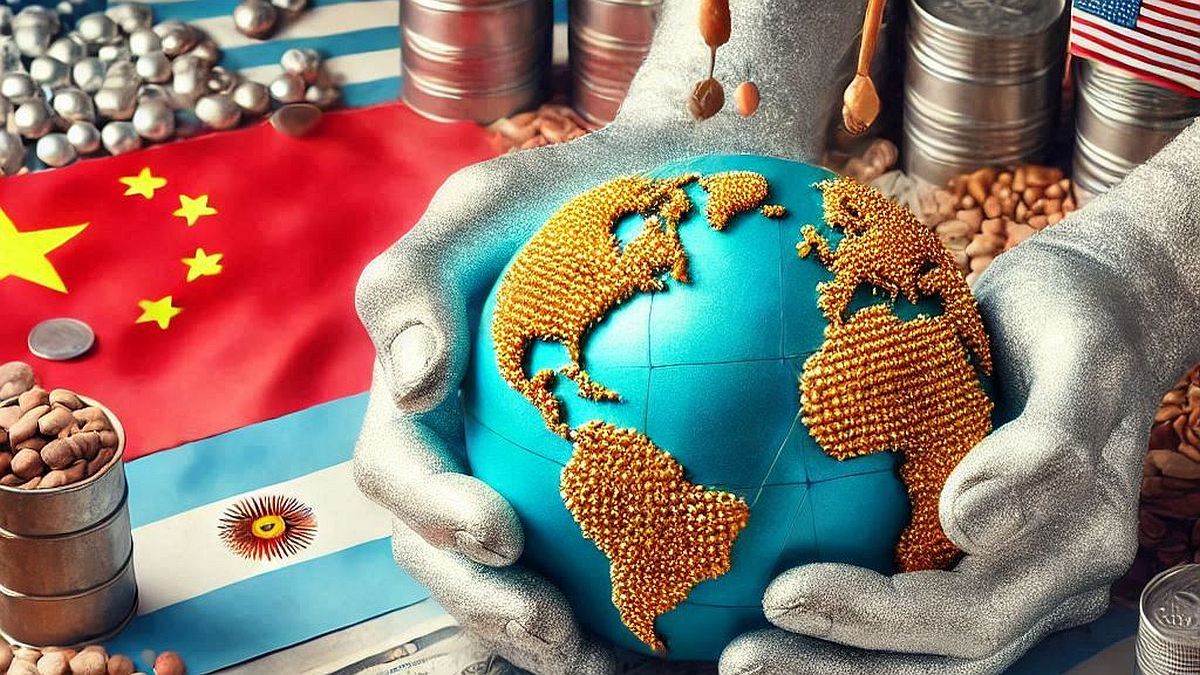Within the framework of the presidential trip to USA, the recent ones exchange interventions of the North American Treasury and statements by Scott Bessent about the strategic importance of Argentina for the interests of that country in the region, the debate resurfaced around the advantages and disadvantages of a rapprochement not only political but also commercial with the government of Donald Trump, and even the possibility of concluding a free trade agreement.
A common criticism that is made to the eventual commercial alignment with the US is that Argentina’s economic structure is similar to that of the northern country. That is, they are competitors when it comes to producing. “It is an issue of economic structure. Argentina and the United States export the same“, the economist and professor at the Austral University told this medium, Federico Vaccarezza.
“This is not a current problem, but rather It was already foreseen in the 40s when Argentina I saw that the new world leader was going to be USA and not Great Britain and they debated what the strategy would be to trade with the Americans,” he explained.
He argued that “Argentina is a country that has been almost completely reprimarized“Just for two or three things, the population has grown, per capita income has fallen, we are in a very complex situation and now we depend on agro-food to sell to China and we are fighting with them.”
According to the latest data from the trade balancethe trading volume with China was from US$16,448 million in the accumulated amount of 2025which makes the Asian power the second largest partner of Argentinabehind Brazil. In fourth place is the US, with US$9,687 million in that same period.
From his perspective, “There is clearly a political decision to benefit American farmers and to American companies to the detriment of oilseed production in the Argentine field.
The possibility of key investments
On the opposite side, the economist specialized in international affairs Marcelo Elizondo raised to Scope that although Argentina and the United States are competitors, “especially in what is linked to agriculture, and in other areas similarity can occur,” he believes that “we can complement each other and go out to third marketsThere may even be American investment in Argentina to supply the American market itself, for example, in energy or minerals“.
According to data from the first quarter of the year, the Foreign Direct Investment (FDI) of the United States was 17% of the total, taking the gross passive position. The country with the highest level, followed by Spain and the Netherlands.
In his opinion, “For Argentina there is an opportunity to occupy spaceconsidering national and US policy, which restricts trade with marked third parties.” He stated that “No agreement with the US restricts Argentine trade with China“, and considered that the government of Donald Trump “He is more concerned that Argentina and China do not advance on more relevant strategic issues such as the Waterway, 5G or the Port of Ushuaia“.
swap.jpg
Argentina will have swaps with both China and the US.
In this sense, a businessman with fluid contacts with Chinese firms was skeptical that pressure could stop projects already in development. “The investments that exist from China are all made within the framework of legal procedures and contractsaccording to provincial laws, then they cannot be limited.
Elizondo considered that ““They are worried about selling more commodities to China.” And he added: “I don’t see an imminent difficulty. What worries me most is that China has been buying less from us for a couple of years and That has more to do with domestic issues and the fact that the Chinese economy is growing less.“.
The comparison with Brazil
Curiously, both Vaccarezza as Elizondo agreed to highlight the case of Brazil. The professor from the Austral University gave it as an example when it comes to avoiding reprimarization in trade with Chinaas happened in the Argentine case.
“Brazil produces seven times the amount of agri-food that Argentina produces. In 1994 it was twice, now it is seven. It means that they did things right. Furthermore, Brazil did not deindustrialize, it industrialized,” he stated. And he maintained that “The blame lies with the political and industrial elites in Argentina, who decided to go down the path of primarization”.
For his part, Elizondo compared an eventual commercial relationship with the United States similar to the one currently maintained with the neighboring country: “We are partners of Brazil and today we are losing markets in China because they are gaining them, and that has nothing to do with them being partners.. Today even Uruguay is gaining market share from China and we are not.”
Source: Ambito




